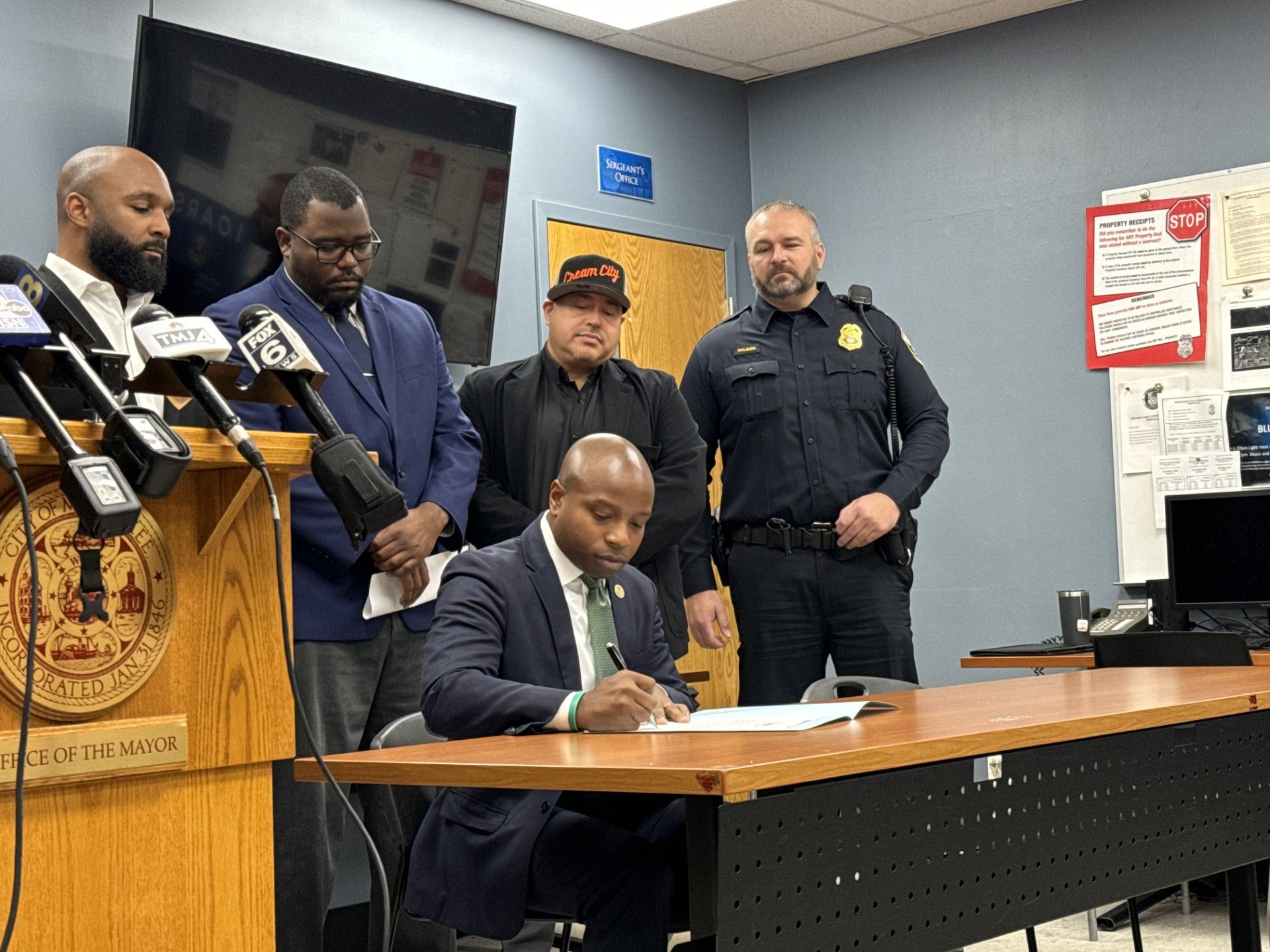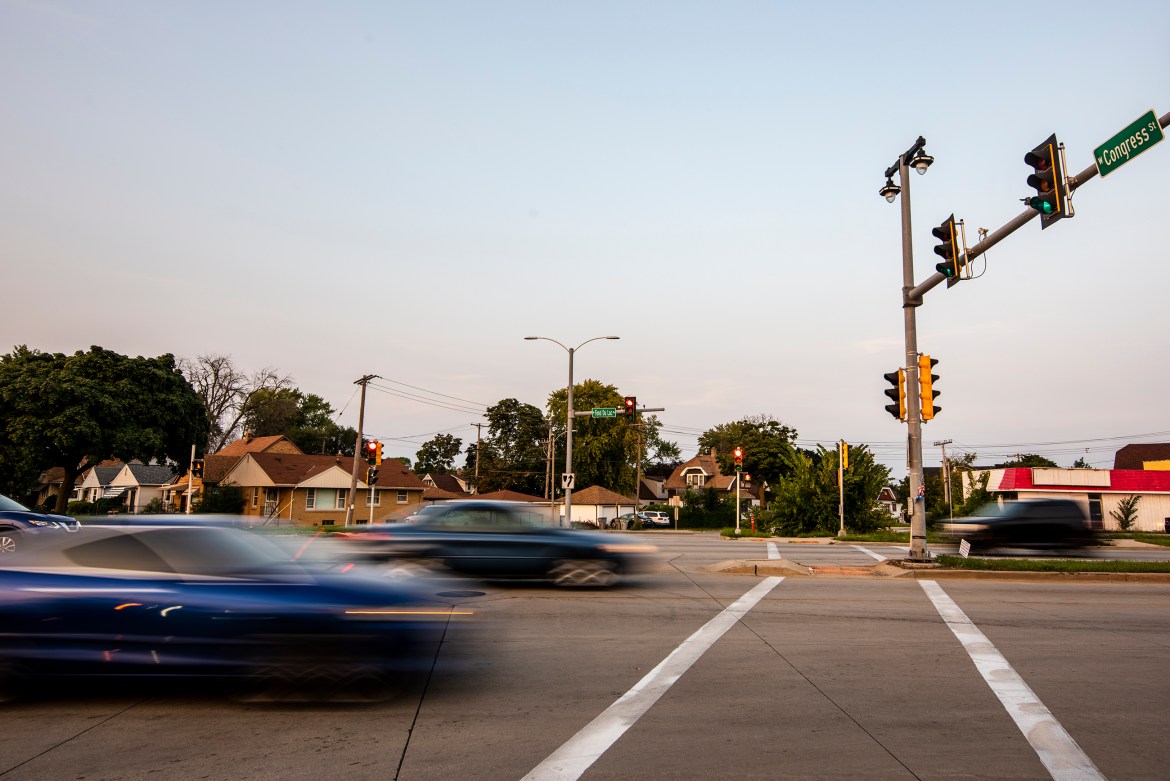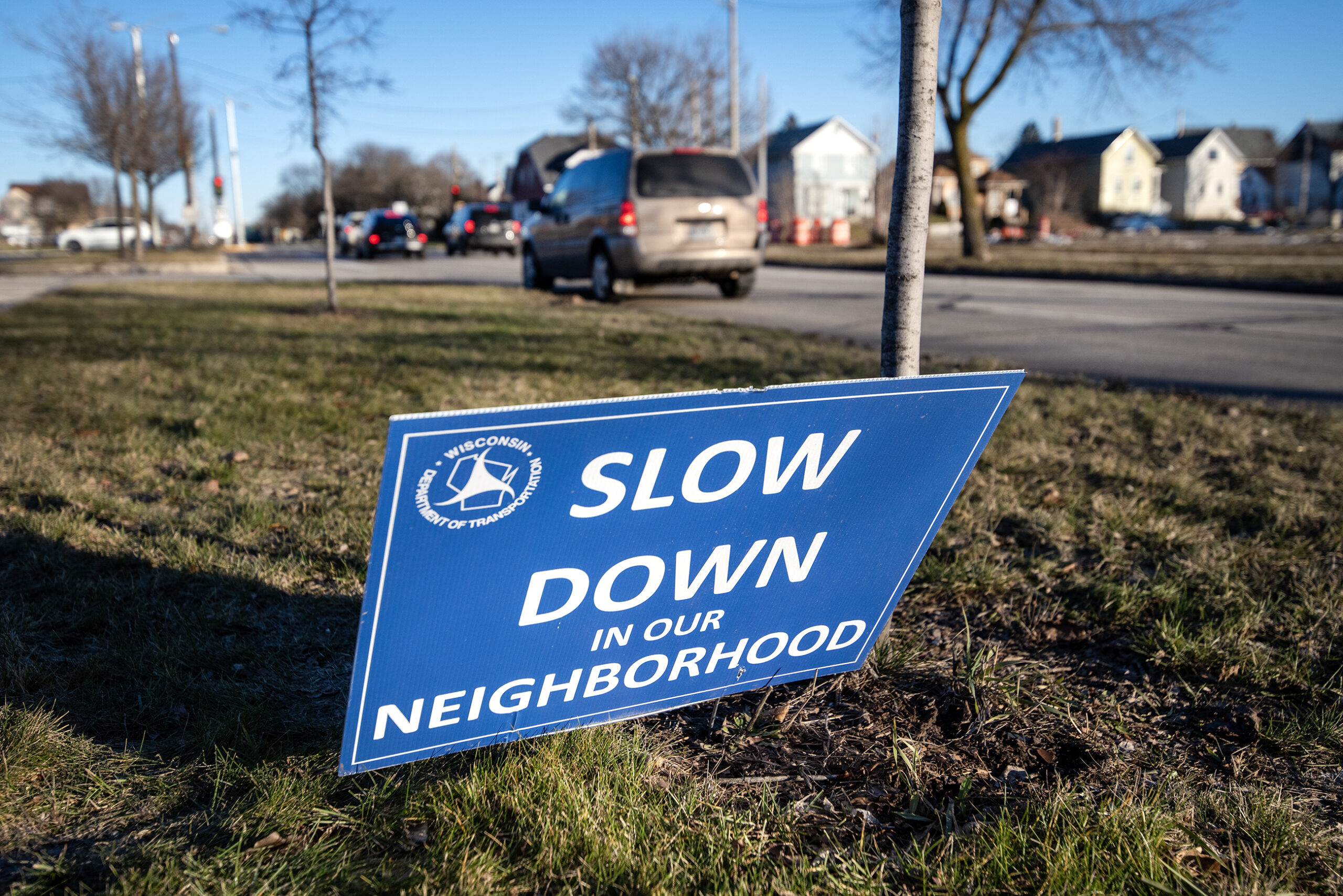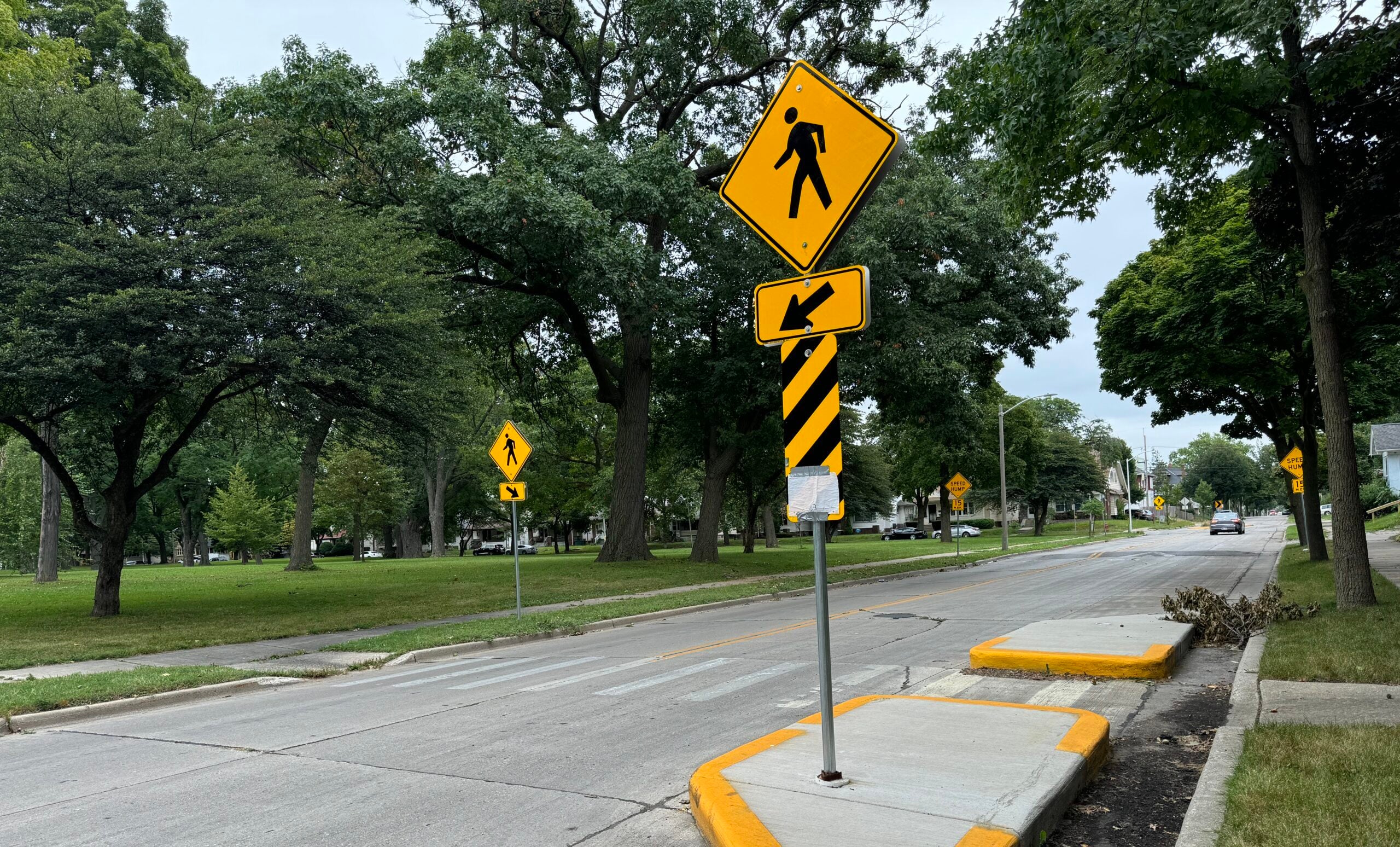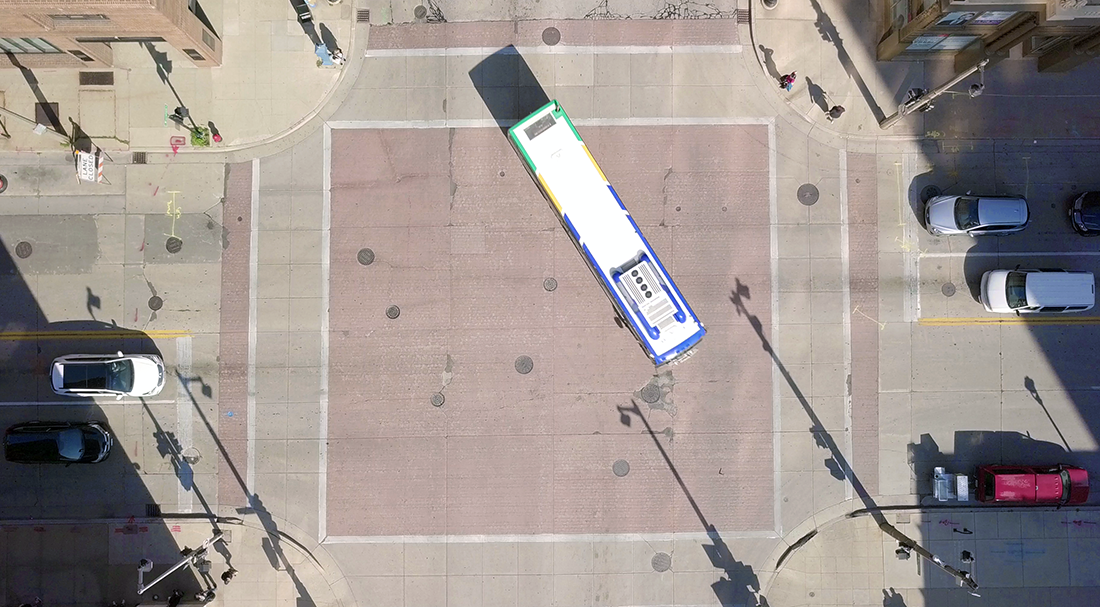Milwaukee’s mayor signed a resolution Monday, calling on state lawmakers to give the city another tool to tackle reckless driving.
The resolution, unanimously passed by the Milwaukee Common Council in September, calls for a change in state law that would allow the city to impound the vehicle of someone who has received their first reckless driving citation, regardless of their prior driving record or whether the driver is the owner of the vehicle or not. Milwaukee Mayor Cavalier Johnson called that step an “additional tool” to address reckless driving in the city and across the state.
“I’m asking the state Legislature to empower local governments, local communities, to tow the cars of reckless drivers in more situations than are currently permitted,” Johnson said during a press conference Monday.
Stay informed on the latest news
Sign up for WPR’s email newsletter.
Shortly after leaving the press conference, Milwaukee Police Chief Jeffrey Norman and another officer were injured when their vehicle was struck by a dump truck. That crash is under investigation, and it is unclear if it was related to reckless driving. According to the police department, both the chief and the second officer were treated for non-life-threatening injuries.
Currently, state law says police can impound the vehicle of a reckless driver only if the driver is the owner of the vehicle and only if the driver has an outstanding forfeiture for a previous reckless driving offense. Milwaukee is asking for a change in state law to expand that enforcement, including towing a vehicle that was loaned to a reckless driver.
“If you’re going to drive recklessly, you’re going to lose your car — if the state follows our pleading, and it is pleading at this point, for additional tools to deal with reckless driving,” Milwaukee Alder Scott Spiker said Monday.
Milwaukee Alder Lamont Westmoreland, the sponsor of the resolution, called it a “baby step,” but he also wants people to think twice before letting someone else drive their vehicle to drive recklessly.
“The whole objective here is to change the behavior, so next time, you’re not going to let that person drive the vehicle,” Westmoreland said.
“Some people say they can’t afford to get their vehicle out of impound or afford the citations — all this is self-inflicted,” he added.
Johnson said the city’s Intergovernmental Relations Division will lobby state lawmakers to make the changes they are calling for.
“This is the city of Milwaukee, in a very unified fashion, sending this request … to the Legislature, saying, ‘This is something that we’d like to see,’” Johnson said.
This spring, the Legislature approved an increase in fines for reckless drivers across the state. With it, the penalty for a first reckless driving offense was increased from $25 to $200, while a second offense is now $500. Fines for subsequent offenses have been raised from $100 to $1,000, and repeat offenders can be sentenced to jail time. If reckless drivers cause “great bodily harm,” their maximum prison sentence could be six years, up from three-and-a-half years.
A spokesperson for Assembly Speaker Robin Vos, R-Rochester, did not respond to a reporter’s request for an interview for this story.
Reckless driving is an issue that has plagued the city for years, and city leaders have been trying to tackle the problem using different approaches. Last year, the Milwaukee Police Department issued 496 reckless driving citations, a 32 percent increase from one year prior. The Milwaukee Police Department’s Traffic Safety Unit also gave out over 13,000 traffic citations last year — 7,414 of which were for speeding.
It’s also an issue statewide. The Wisconsin Department of Transportation said about 2,900 people are injured in reckless driving crashes every year in the state. Last year, 119 people in Wisconsin were killed by reckless drivers.
Milwaukee officials said enforcement is just one part of tackling the issue. The city is using federal funds and the city budget to implement traffic safety improvements across the city. That includes installing high visibility markings, upgrading traffic signal equipment and making intersections compliant with the Americans with Disabilities Act. Street redesign and engineering can help narrow the roadway, making it more difficult for reckless drivers to swerve in and out of traffic.
Wisconsin Public Radio, © Copyright 2025, Board of Regents of the University of Wisconsin System and Wisconsin Educational Communications Board.
